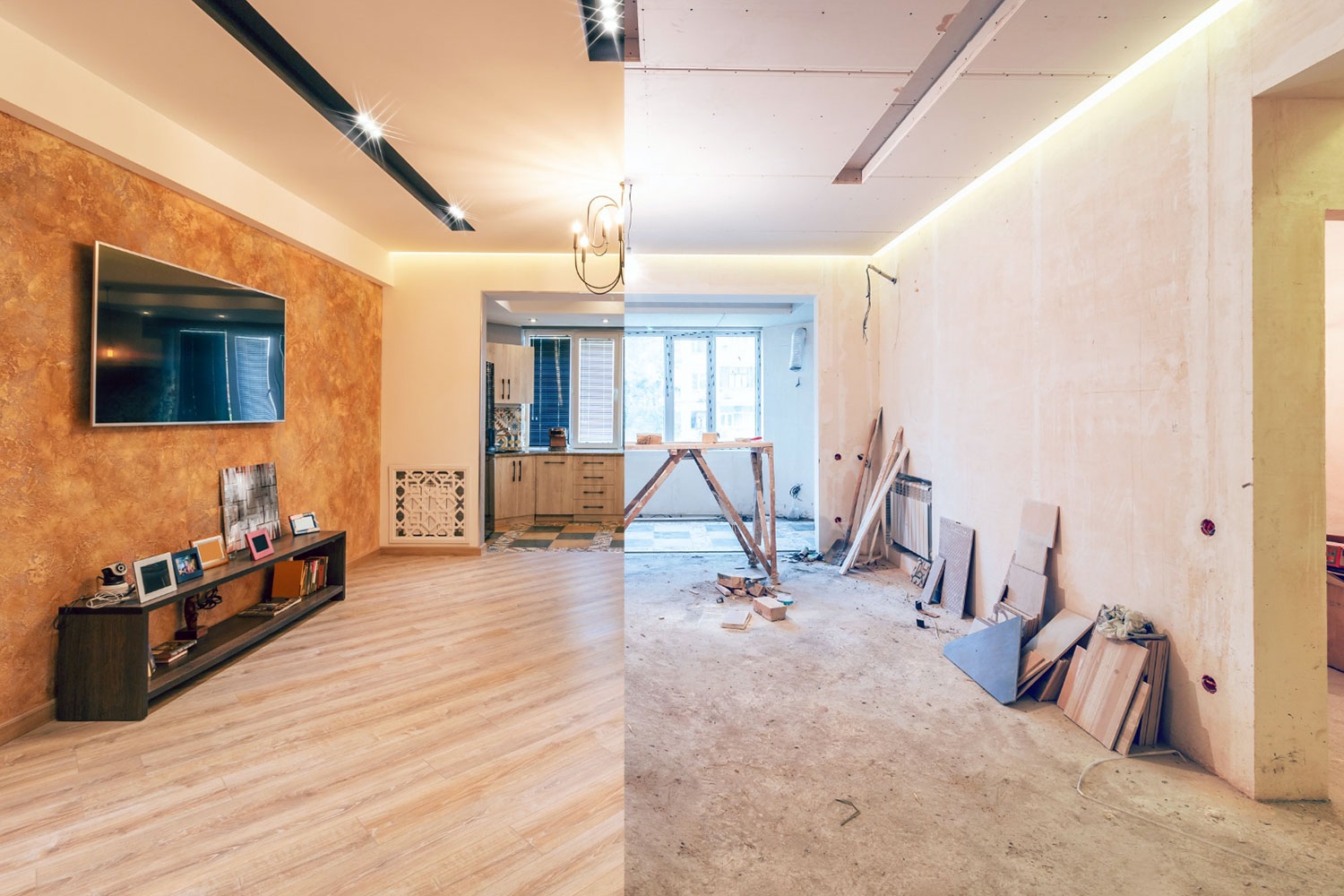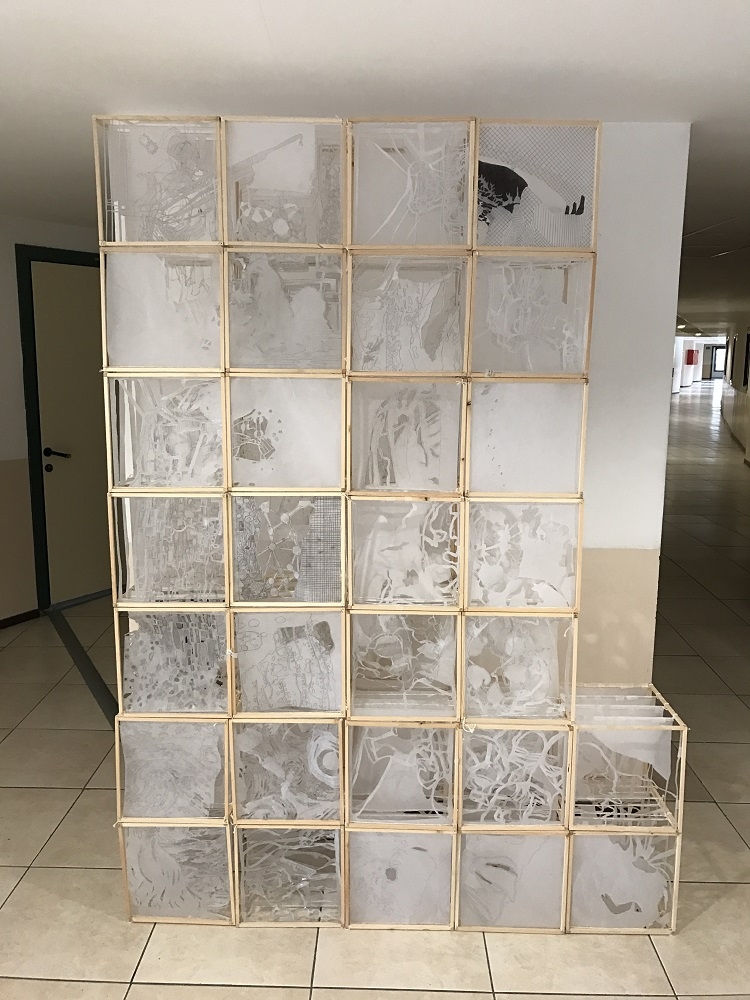
Kalite Güvence ve Standartları İlk Konuğunu Ağırladı
...

We spent the money on home improvements
People, who do not go out due to the coronavirus unless it is necessary, and who are deprived of the ...

...
| Course Name |
Quality and Assurance Standards
|
|
Code
|
Semester
|
Theory
(hour/week) |
Application/Lab
(hour/week) |
Local Credits
|
ECTS
|
|
MMVD 212
|
Fall/Spring
|
2
|
0
|
2
|
3
|
| Prerequisites |
None
|
|||||
| Course Language |
Turkish
|
|||||
| Course Type |
Elective
|
|||||
| Course Level |
Short Cycle
|
|||||
| Mode of Delivery | - | |||||
| Teaching Methods and Techniques of the Course | Lecture / Presentation | |||||
| National Occupation Classification | - | |||||
| Course Coordinator | - | |||||
| Course Lecturer(s) | ||||||
| Assistant(s) | - | |||||
| Course Objectives | At this course it is aimed to gain qualifications related to quality assurance and standards in business life. |
| Learning Outcomes |
The students who succeeded in this course;
|
| Course Description | This course includes building the infrastructure of the quality management system, applying quality standards, and applying statistical quality control methods. |
| Related Sustainable Development Goals |
|
|
Core Courses | |
| Major Area Courses | ||
| Supportive Courses | ||
| Media and Management Skills Courses | ||
| Transferable Skill Courses |
| Week | Subjects | Related Preparation |
| 1 | Quality concept | Kobu, B., “Üretim Yönetimi”, İnkılâp Kitabevi, (2017), 3-28 |
| 2 | Standard and standardization | Kobu, B., “Üretim Yönetimi”, İnkılâp Kitabevi, (2017), 31-51 |
| 3 | Management Quality and Standards | Kobu, B., “Üretim Yönetimi”, İnkılâp Kitabevi, (2017), 55-76 |
| 4 | Environmental Standards | Kobu, B., “Üretim Yönetimi”, İnkılâp Kitabevi, (2017), 79-107 |
| 5 | Quality Management and Basic Concepts | Kobu, B., “Üretim Yönetimi”, İnkılâp Kitabevi, (2017), 111-138 |
| 6 | Strategic Management | Kobu, B., “Üretim Yönetimi”, İnkılâp Kitabevi, (2017), 141-158 |
| 7 | Codetermination | Kobu, B., “Üretim Yönetimi”, İnkılâp Kitabevi, (2017), 161-186 |
| 8 | Midterm | Midterm |
| 9 | Process Management System, Human Resources Management | Kobu, B., “Üretim Yönetimi”, İnkılâp Kitabevi, (2017), 189-226 |
| 10 | Turquality Corporate Management System | Kobu, B., “Üretim Yönetimi”, İnkılâp Kitabevi, (2017), 229-258 |
| 11 | Quality Control in Production | Kobu, B., “Üretim Yönetimi”, İnkılâp Kitabevi, (2017), 263-324 |
| 12 | Inspection and Sampling | Kobu, B., “Üretim Yönetimi”, İnkılâp Kitabevi, (2017), 327-368 |
| 13 | Total Quality Management | Kobu, B., “Üretim Yönetimi”, İnkılâp Kitabevi, (2017), 371-458 |
| 14 | Document Management | Kobu, B., “Üretim Yönetimi”, İnkılâp Kitabevi, (2017), 461-510 |
| 15 | Statistical Distributions | Kobu, B., “Üretim Yönetimi”, İnkılâp Kitabevi, (2017), 513-545 |
| 16 | Final Exam | Final Exam |
| Course Notes/Textbooks | Çağlar, İ., Kılıç, S., “Kalite Güvence Standartları”, Nobel Yayınevi,(2008) ISBN: 6051330181 |
| Suggested Readings/Materials |
| Semester Activities | Number | Weigthing |
| Participation | ||
| Laboratory / Application | ||
| Field Work | ||
| Quizzes / Studio Critiques | ||
| Portfolio | ||
| Homework / Assignments | ||
| Presentation / Jury | ||
| Project | ||
| Seminar / Workshop |
1
|
30
|
| Oral Exams | ||
| Midterm |
1
|
30
|
| Final Exam |
1
|
40
|
| Total |
| Weighting of Semester Activities on the Final Grade |
2
|
60
|
| Weighting of End-of-Semester Activities on the Final Grade |
1
|
40
|
| Total |
| Semester Activities | Number | Duration (Hours) | Workload |
|---|---|---|---|
| Theoretical Course Hours (Including exam week: 16 x total hours) |
16
|
2
|
32
|
| Laboratory / Application Hours (Including exam week: '.16.' x total hours) |
16
|
0
|
|
| Study Hours Out of Class |
14
|
2
|
28
|
| Field Work |
0
|
||
| Quizzes / Studio Critiques |
0
|
||
| Portfolio |
0
|
||
| Homework / Assignments |
0
|
||
| Presentation / Jury |
0
|
||
| Project |
0
|
||
| Seminar / Workshop |
1
|
8
|
8
|
| Oral Exam |
0
|
||
| Midterms |
1
|
10
|
10
|
| Final Exam |
1
|
10
|
10
|
| Total |
88
|
|
#
|
Program Competencies/Outcomes |
* Contribution Level
|
|||||
|
1
|
2
|
3
|
4
|
5
|
|||
| 1 |
Will be able to have knowledge about the basic technical information of the interior design, methods and tools. |
-
|
-
|
-
|
-
|
-
|
|
| 2 |
Will be able to use and interpret technical and procedural knowledge about the interior design in application and will be able to express suggestions for solutions to problems orally and in written. |
-
|
-
|
-
|
-
|
-
|
|
| 3 |
Will be able to create a strategy by recognizing the market conditions and analyzing revenue management. |
-
|
-
|
-
|
-
|
-
|
|
| 4 |
Will be able to have knowledge about legislation, fundamental values and principles in the field of interior design related to industry. |
-
|
-
|
-
|
-
|
-
|
|
| 5 |
Will be able to think creative and innovative and apply the knowledge in an occasion different than the customary applications with an innovative way of thinking. |
-
|
-
|
-
|
-
|
-
|
|
| 6 |
Will be able to take responsibility as an individual and a team member, will be able to be open-minded, constructive, confident, open to criticism and will be able to work effectively and efficiently. |
-
|
-
|
-
|
-
|
-
|
|
| 7 |
Will be able to internalize the need to obey the values of business ethics and will be able to have and apply the social, scientific and ethical values in the stages of the collection of data, interpretation, dissemination and implementation. |
-
|
-
|
-
|
-
|
-
|
|
| 8 |
Will be able to communicate with colleagues and follow the knowledge in the interior design field by using a foreign language. |
-
|
-
|
-
|
-
|
-
|
|
| 9 |
Will be able to use informatics and communication technologies with computer programs in a level that required by the interior design field. |
-
|
-
|
-
|
-
|
-
|
|
| 10 |
Will be able to adopt a lifelong learning approach, and will be able to do studies for renewing and improving their knowledge continuously. |
-
|
-
|
-
|
-
|
-
|
|
*1 Lowest, 2 Low, 3 Average, 4 High, 5 Highest

...

People, who do not go out due to the coronavirus unless it is necessary, and who are deprived of the ...

...

As Izmir University of Economics transforms into a world-class university, it also raises successful young people with global competence.
More..Izmir University of Economics produces qualified knowledge and competent technologies.
More..Izmir University of Economics sees producing social benefit as its reason for existence.
More..